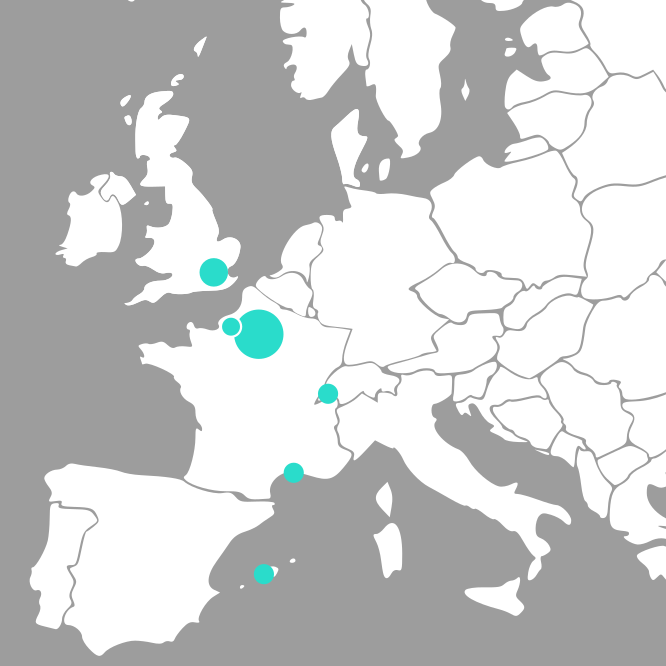EIGHTIES is...
 a network of researchers from the 80's
a network of researchers from the 80's multi / inter / trans / disciplinary
multi / inter / trans / disciplinary funded by the RNSC
funded by the RNSC  active since 2015
active since 2015 The Manifesto
Developing a 'new science of cities'1 is the research program of several international teams in quantitative geography, spatial economics, transport studies as well as statistical physcis, compluter science and geomatic. This project follows decades of research on cities, at the intersection of analysis, modelling and simulation. This work has provided a body of empirical results, methods in spatial analysis and models to explain regularities. It has also opened an epistemological way of thinking about cities and systems of cities as complex systems. Our network is based on a generational basis rather than disciplinary boundaries. It aims at gathering different communities around the development of a new science of complex cities.
This goal results from a global urban issue: urbanisation progresses at a very fast pace and we need to better understand cities' structure and dynamics in order to predict, manage and handle their evolution. This is facilitated by the recent availability of big data to measure and computational techniques to model processes that structure cities.
Data analysis and simulation create the need for infrastructures, skills and research design that only a multi / inter / trans / disciplinary team can provide. Our young research network ambitions to to just that.
1. M. Batty, 2013, The new science of cities, MIT Press.↩
People & Projects
| UNICITY This project aims at measuring and characterising the unicity of individual spatio-temporal trajectories. Drawing on published results at the city scale (DeMontjoye et al., 2015, Science), it aims at validating the major finding on more constrained trajectories: that of NBA players on a basketball field. |
|
|---|---|
| Giulia Carra PhD Student @CEA www.quanturb.com |
Paul Chapron Post-doc @UnivLausanne applicationspub.unil.ch |
| Hadrien Commenges Lecturer @UnivParis1 www.parisgeo.cnrs.fr |
Robin Cura PhD Student @Geographie-cites www.parisgeo.cnrs.fr |
| Riccardo Gallotti Post-Doc @IFISC www.quanturb.com |
Maxime Lenormand Research Fellow @IRSTEA wwww.github.io |
| Thomas Louail Research Fellow @Geographie-cites www.parisgeo.cnrs.fr |
|
| H24 This project aims at evaluating the effect of social segregation at the residence and in the workplace on social disparities of health behaviour, using survey data, synthetic populations and generative agent-based modelling. The model aimed at would allow to expore the impact of public policies of reduction of social segregation on health inequalities. |
|
| Clémentine Cottineau Research Associate @CASA-UCL wwww.bartlett.ucl.ac.uk |
Julien Perret Research Fellow @IGN-COGIT recherche.ign.fr |
Romain Reuillon Research Fellow @Geographie-cites www.parisgeo.cnrs.fr |
Sébastien Rey-Coyrehourcq Research Engineer @UMR-IDEES www.parisgeo.cnrs.fr |
| Julie Vallée Research Fellow @Geographie-cites www.parisgeo.cnrs.fr |
|
EIGHTIES Online
 on GitHub: https://github.com/eighties-cities
on GitHub: https://github.com/eighties-cities Hosting Institutions

Paris
UMR Géographie-Cités (H. Commenges, R. Cura, T. Louail, R. Reuillon, J. Vallée)
Institut de Physique Théorique, IPhT (G. Carra)
COGIT, IGN (J. Perret)
London
University College London, CASA (C. Cottineau, R. Louf)
Lausanne
UNIL (P. Chapron)
Montpellier
IRSTEA (M. Lenormand)
Palma de Mallorca
IFISC (R. Gallotti)
Rouen
UMR IDEES (S. Rey-Coyrehourq)
Hanoï
IRD (A. Drogoul)